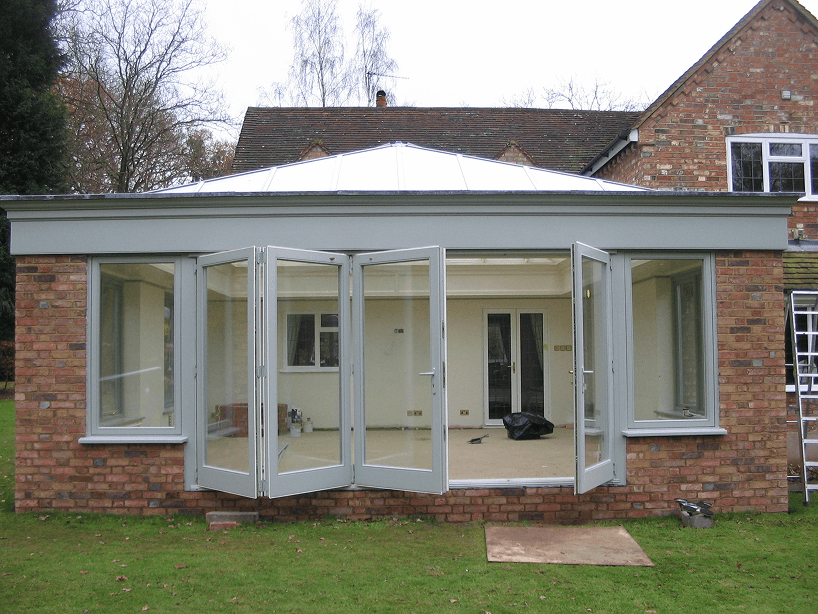“Window glazing” is a phrase that you may have heard frequently but may not be certain as to what it is. The term “window glazing” is simply the process of installing glass panes into a window frame. There is lot more to know about the subject however. Our guide to window glazing will cover the essentials such as types of window glazing, tips for installation as well how to carefully look after your glazing.
Why Is Window Glazing Important?
Proper window glazing installation is essential for several reasons:
Energy Efficiency
Well-glazed windows contribute significantly to energy efficiency by preventing heat transfer between the interior and exterior spaces. This can result in reduced energy consumption for heating and cooling, leading to lower utility bills.
Comfort and Insulation
Effective glazing helps to maintain a comfortable indoor temperature by preventing drafts and minimising both heat loss and gain. It also helps with sound insulation, creating a quieter and more peaceful living or working environment.
Durability and Weather Resistance
Professional glazing will act as a protective barrier between you and the harsh weather conditions. More than that, though, it will protect your window frames from deterioration, enhancing the overall longevity of the window.
Natural Light
Properly glazed windows allow natural light to enter the building, creating a brighter and more inviting interior. This not only reduces the need for artificial lighting but also contributes to a positive atmosphere.
Types of Window Glazing
There are a number of different types of window glazing available on the market.
Single Glazing
Single glazing involves the use of a single pane of glass within a window frame.
Advantages
- Cost-effective: Single glazing tends to be more affordable compared to its multi-pane counterparts, making it an economical option for budget-conscious projects.
- Easy Installation: Due to its simplicity, the installation of single glazing is typically straightforward, making it a practical choice for various window styles.
Disadvantages
- Limited insulation: Single glazing offers minimal insulation against heat transfer, making it less energy-efficient. This can result in increased energy consumption for heating and cooling.
- Poor sound insulation: The single pane provides limited sound insulation, allowing more external noise to penetrate the interior space.
Double Glazing
Perhaps the most well known type of glazing available, double glazing involves two panes of glass separated by a layer of air. The space between the panes acts as insulation which helps to reduce heat loss and improve energy efficiency.
Advantages
- Improved insulation: The additional layer of glass and insulating airspace significantly reduces heat loss or gain, enhancing the overall energy efficiency of the building.
- Better sound insulation: Double glazing provides improved sound insulation, creating a quieter indoor environment by reducing external noise.
Disadvantages
- Higher initial cost: Double glazing is generally more expensive to install compared to single glazing, which can be a limiting factor for some budgets.
- Potential for condensation: In certain conditions, condensation may form between the panes, affecting visibility and requiring maintenance.
Triple Glazing
Typically used for security and thermal retention, triple glazing uses three panes of glass with two layers of air or gas between them.
Advantages
- Superior Insulation: Triple glazing provides the highest level of insulation among the three types, further reducing energy consumption and maintaining a consistent indoor temperature.
- Enhanced Soundproofing: The additional pane of glass contributes to better soundproofing, making it an ideal choice for areas with high noise levels.
Disadvantages
- Increased Cost: The upfront cost of triple glazing is higher than that of double glazing, which may impact the initial investment in a construction or renovation project.
- Weight: Triple glazing can be heavier than other options, requiring sturdy window frames to support the additional weight.
Understanding the characteristics and trade-offs of each type of window glazing is crucial for making informed decisions based on specific needs, budget constraints and performance requirements. Our team have over 40 years of experience in working with windows – we will be happy to discuss your projects and help you make an informed decision regarding which glazing suits you best. Contact us today.
Installing Your Window Glazing
Installing window panes can be a difficult task which is why we encourage you to use one of our professional installers. If you are looking to complete the task yourself, however, there are a few tips to consider:
Measurement and Assessment
Accurately measure the window opening to ensure that the glass panes and other components fit precisely. Assess the condition of the existing window frame, identifying any damage or areas that may need repairing before installation.
Surface Cleaning
Clean the window frame and surrounding surfaces. Remove any dirt or old sealants that could affect the new glazing materials. A clean and smooth surface is essential for a long-lasting window glazing installation.
Applying Sealants
High-quality sealants will create a watertight and airtight seal between the glass pane and the window frame. Apply evenly along the edges of the frame, ensuring complete coverage. There are a number of sealants for different purposes (weather resistance, compatibility with the materials involved etc.) so be sure to check you are using the right one.
Placing Spacer Bars
Spacer bars help create an insulated airspace, reducing heat loss and preventing condensation. They are typically made of materials like aluminium and are available in various thicknesses.
Installing Glass Panes
Ensure that the panes align correctly with the spacer bars and that they fit within the frame. Press the glass firmly into the sealant, creating a secure bond. For multi-pane glazing, repeat this step for each layer.
Inspecting for Air Leaks
Check for gaps in the sealant or any areas where the spacer bars may not be properly aligned. Address any issues quickly to maintain the energy efficiency and insulation properties of the window.
Securing the glazing
Depending on the window design, use appropriate fasteners or clips to ensure the glass remains stable within the frame. This step is crucial for preventing shifting or dislodging of the glass over time.
Following these steps diligently ensures the longevity and optimal performance of the glazed windows.
Maintaining Your Window Glazing
Keeping your window glazing healthy and functional helps you to avoid wholesale replacement further down the line. There are a number of tips to follow in order to effectively care for and maintain your window glazing.
Regular cleaning
Remove dirt, dust and any grime to ensure optimal transparency and maximum natural light penetration.
Sealant Checks
Inspect the condition of the sealant around the window frame. Look for cracks, gaps or signs of wear. If any issues are detected, consider reapplying or repairing the sealant to maintain its effectiveness.
Condensation Assessment
Monitor the interior and exterior surfaces of the glass for condensation, especially in humid conditions. Excessive condensation can indicate a potential issue with the glazing or insulation. Ensure proper ventilation to minimise condensation.
Professional Inspections
Arrange for professional inspections of your windows. A trained technician can identify issues that may not be immediately apparent and provide recommendations for maintenance or upgrades.
The world of window glazing is vast and there is a lot to unravel. But if you need further advice or are looking for a professional to help with an installation, contact us today for a free quotation!







